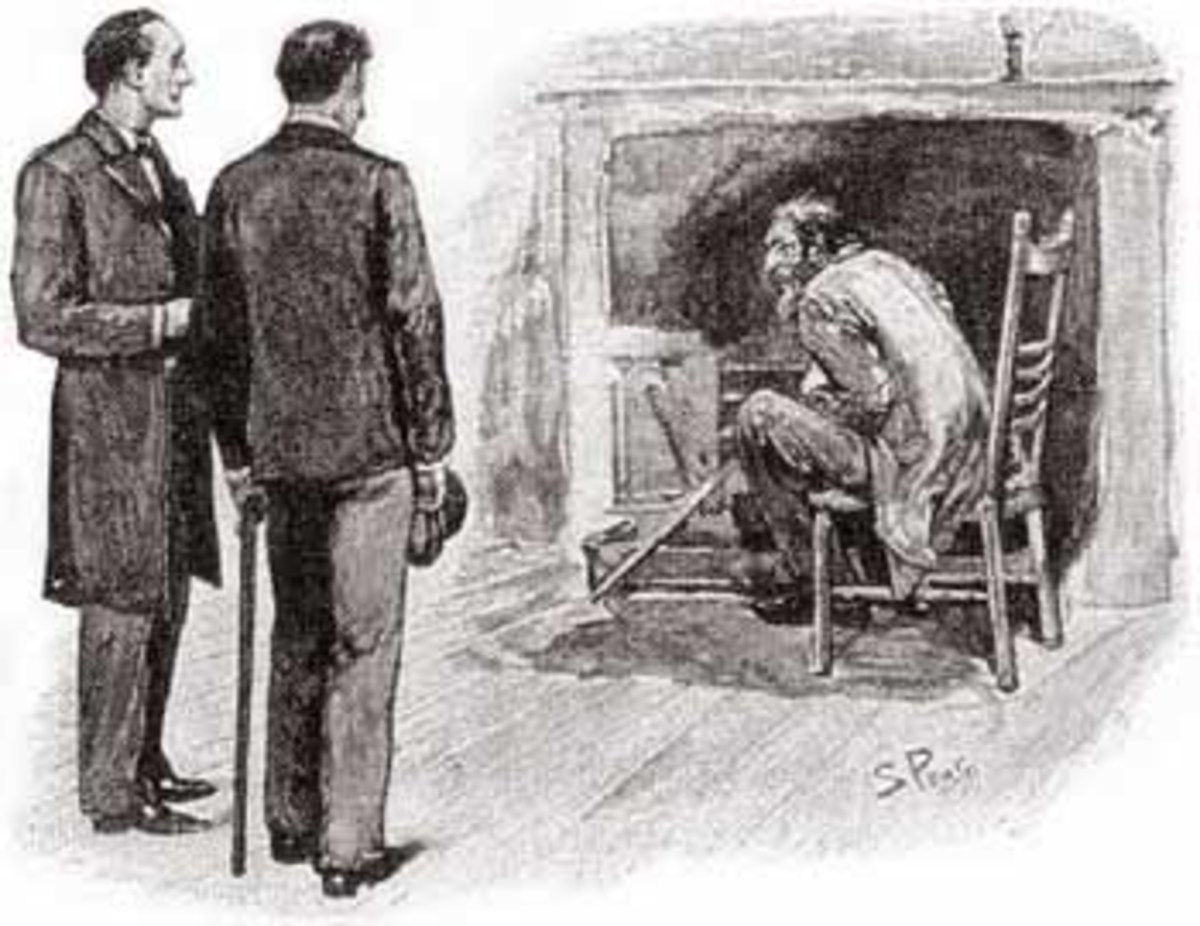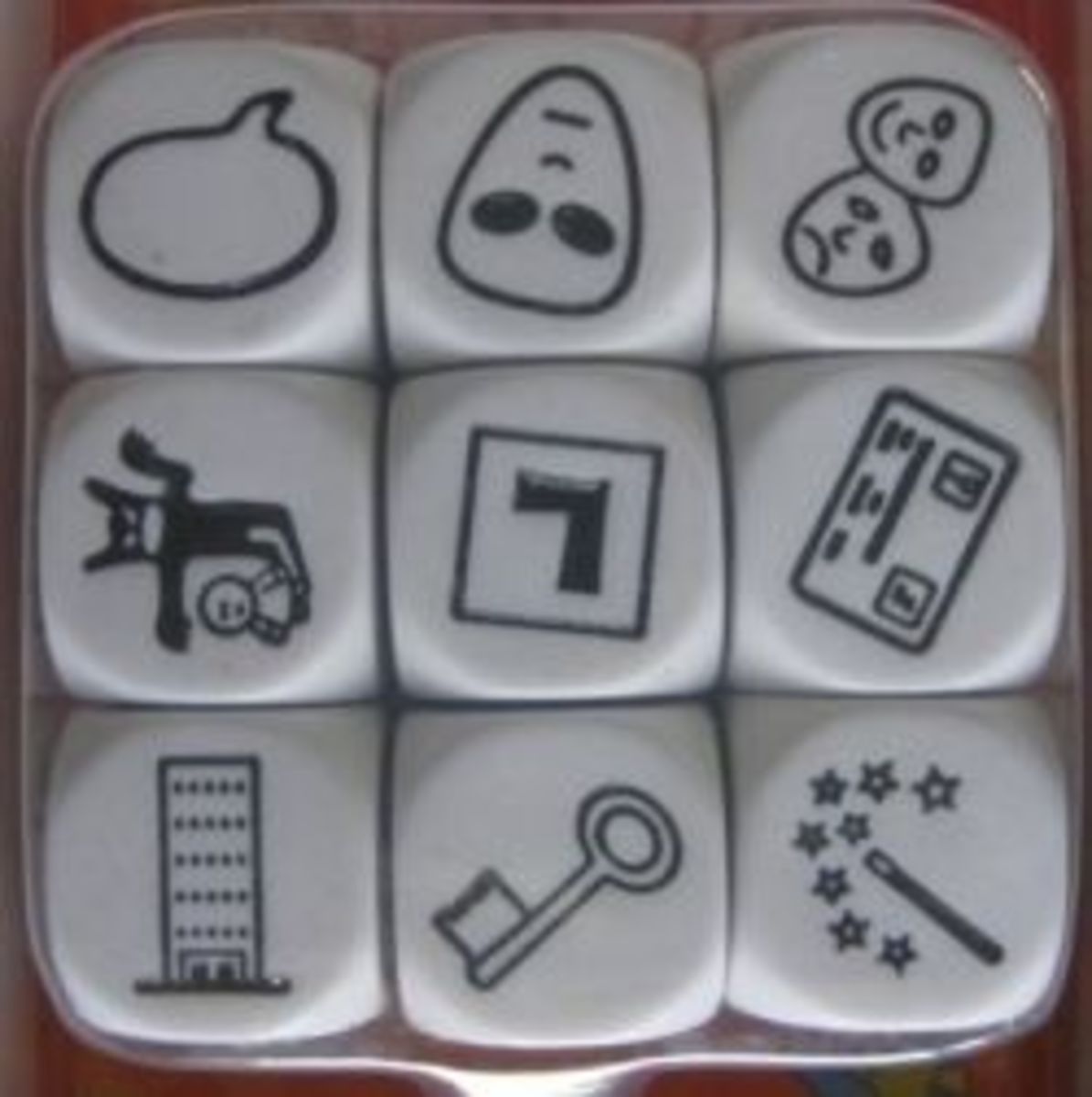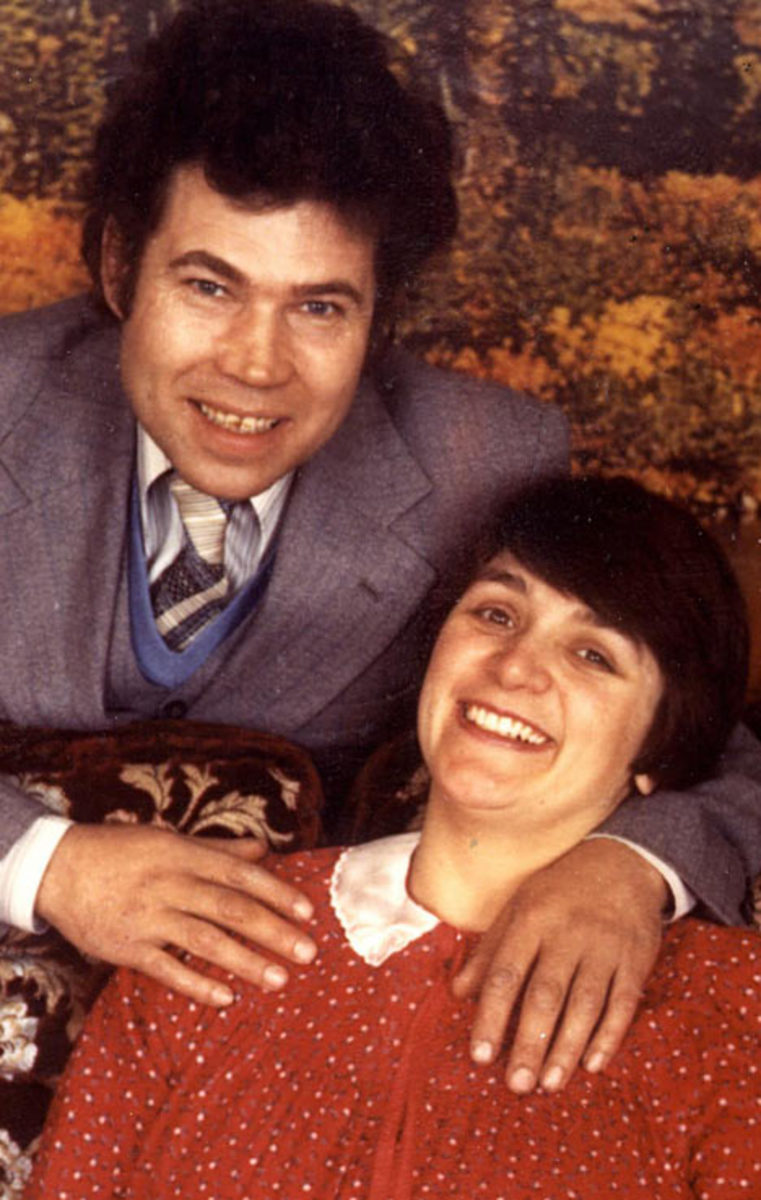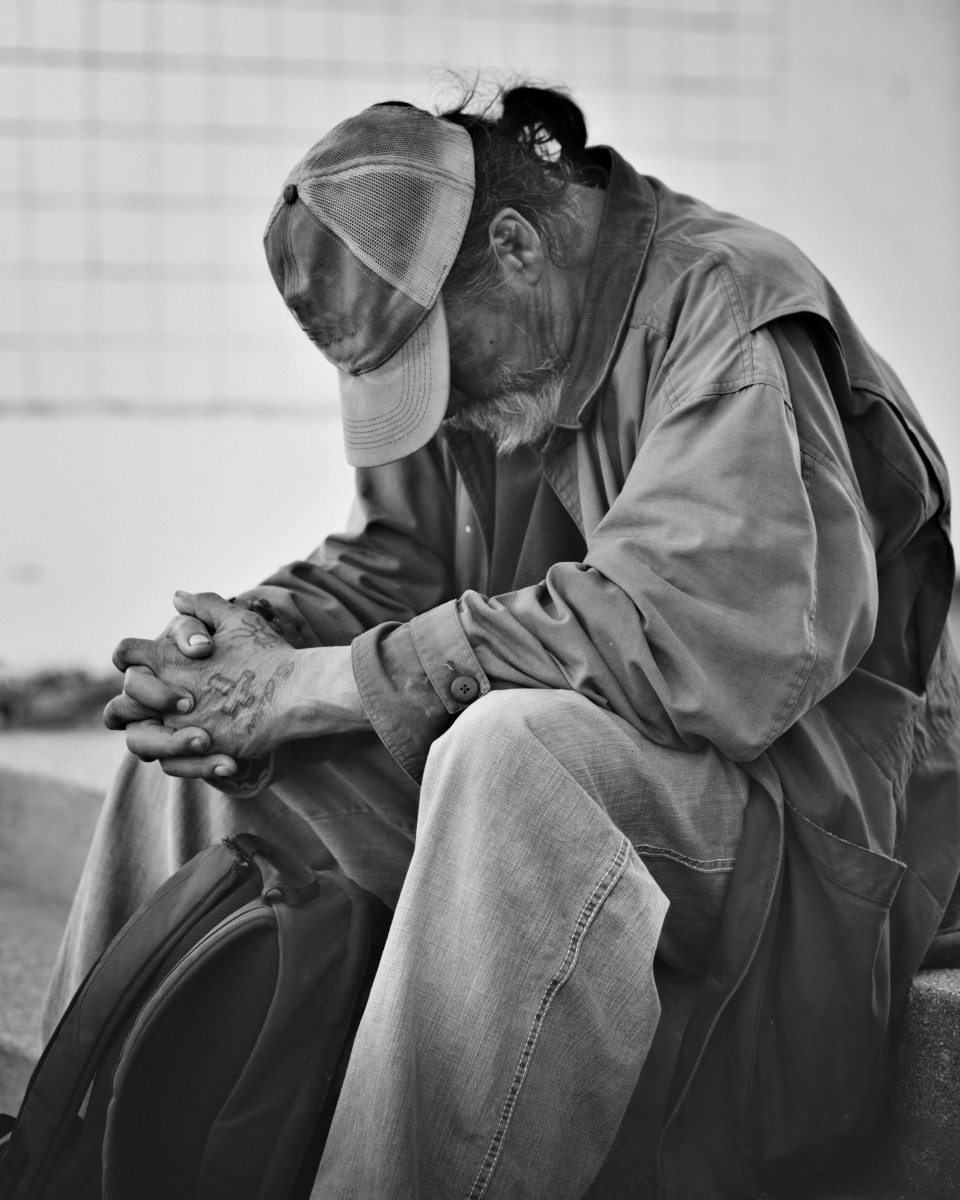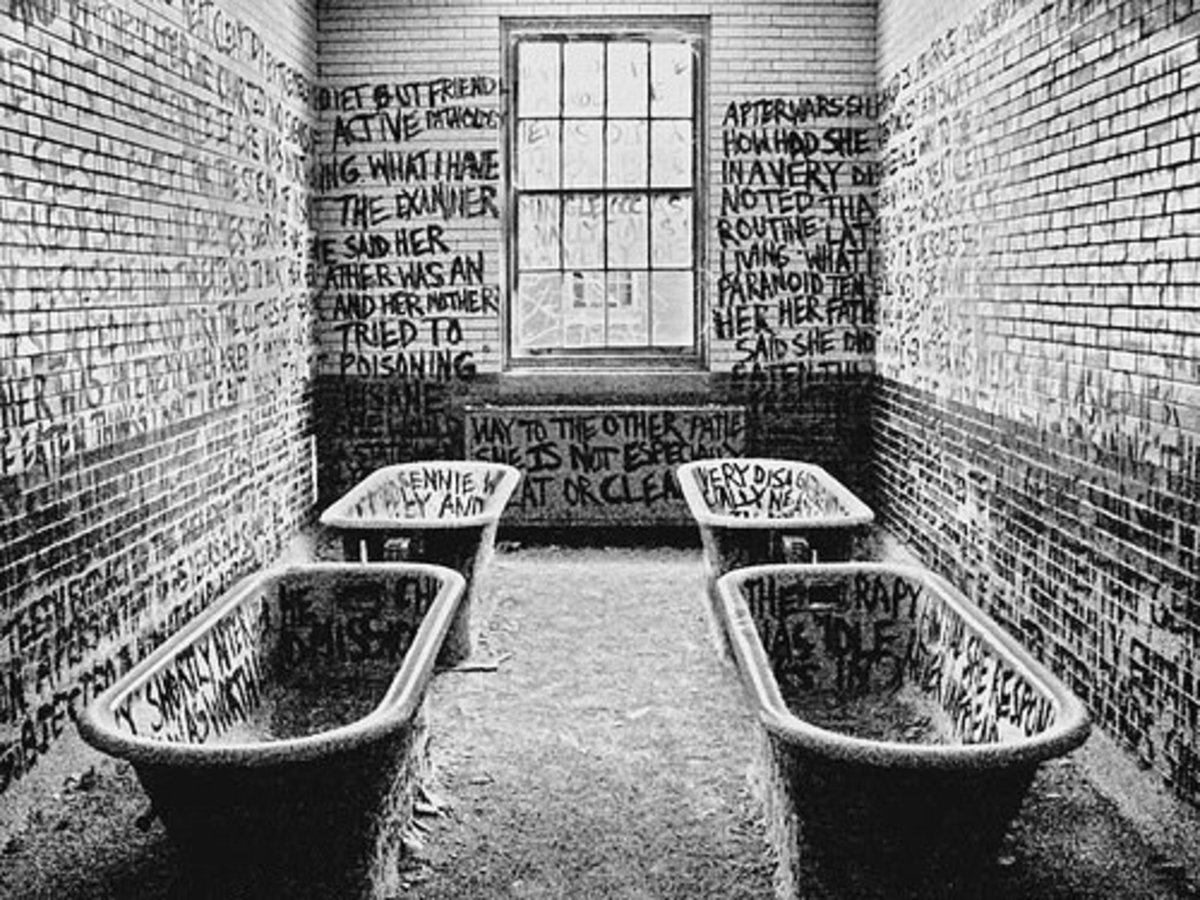- HubPages»
- Books, Literature, and Writing»
- Commercial & Creative Writing»
- Creative Writing
The Story of the African Slave: A Tale of Love and Loss (Short Story: Based on a Real Myth)

The sights outside the metro train shimmered before my eyes, creating a mirage of green, silver, and blue. The evening metro was packed with office goers as they got cooked in the day’s sweat that accumulated from their toil in their hot offices. Summer was at its peak, the sun mercilessly scorching the steel body of the train. My childhood city, an ancient port on the western side of the Indian peninsula, is bound to drown in the Arabian Sea in the next 25 years as sea levels rise, if climate experts are to be believed. As I sat inside the train, experiencing the extraordinary heat, I felt like I was in a burning furnace about to fall into the sea. This teeming seaport of colonial verisimilitude, where the Dutch, Portuguese, and English built their forts and cemeteries to rule, live and die, had been a second home to me, where our family lived when we were kids. Here, my father had a job, and I still have many friends from my school.
In contrast, my village, where our family settled after my father retired, is remote, cucumber green, and silent, a place of serene air and sweet water. Yet, I found the city again when I had my first job here. I still carry some partiality towards it. This city gave me my identity with the necessary dose of anonymity it provides to all, especially a woman like me. Villages are ruthlessly patriarchal, while the cities’ floating populations have a shortage of time to care for what women do, a fact working to the advantage of us who strive to be independent and free.
My best friend has assigned me a task. The assignment begins today. I have to be in a dilapidated Victorian building on the sea coast by day's end, where I will meet Uncle Fred, one of the senior residents of this city. I am expected to convince him to move to my village, where he has his ancestral home. In the process, I shall help him move his bank accounts and similar documents to our home village and arrange transportation for his household things. The task fell upon me when his sole child, a daughter who lives abroad, began to get worried about his lonely stay in the coastal corner of the city, given its rising crime numbers and commotion.
I am not to divulge his name here because he is quite a recluse, that is, he has been after retirement. I will call him Uncle Fred. That was what we used to call him when we were kids in that Anglo-Indian neighbourhood. His ancestors were English and North Indian Parsis. He had blue eyes, and his black hair still shone against his fair face. As kids, we adored him for his well-maintained red bike, his elegant watches and blue-rimmed glasses, and his fine, pastel taste in clothing.
When I reached his seaside villa, the day had mellowed, and the sea had lost its furious glory of the day. The land and the water seemed to assume the same bland grey hue in a tired mutual embrace. Uncle Fred's maid brought in tea and biscuits as we sat on the Verandah in brown cane chairs overlooking the sea. Oh my! Those biscuits were a blast from the past! They were made by the women of the small Anglo-India community living there. They were part of what remained here as the vestiges of the long past colonial era. The people hanging between two cultures when the British departed, as they belonged more to this shore than the English cities and countryside, about which they knew only from news, stories, and imagination. They spoke the local language and followed Indo-British customs; Indian souls inside English men's and women's costumes.
The evening was setting in. Pleasant shades were cast by the branches of the two Guavas in Uncle Fred's courtyard. A not-so-high compound wall separated the front of his property from the seashore, a wall covered in bougainvillaea of different shades. The splashing colours of the mix of thick bunches of flowers framed the view of the sea.
Uncle Fred smiled when I requested him to heed his daughter’s suggestion to relocate. “I understand that you do not want to leave this lovely house and this dear city, which you helped build. This is where you spent most of your life. Yet, a hospital is 20 kilometres away, and the nearest taxi stand is 10 kilometres from here. To get a taxi, you or your maid will have to phone the driver and wait for another 30 minutes, given the condition of the roads and traffic,” I tried to coax him.
He kept silent, fidgeting with his walking stick, a shining, perfect Mahogany stick with an intricately carved grip, a lion's face with curly mane and cruel eyes strikingly visible on it. He was a high-ranking officer in a British plantation company that grew tea and cardamom. The company was headquartered in this port city. After retirement, he settled here. His daughter, my friend, had her schooling and higher education here.
“Do you know slaves were brought here from Africa by the Portuguese?” he suddenly asked me. “No, uncle, why?” I was surprised at the change of topic. “Young people like you must read more history,” he replied jovially. I could understand that he was changing the subject because he did not discuss his daughter’s wish further. I felt I must give him time to think about it.
The dinner was peaceful, and he went to bed early. I sat on the porch, enjoying the sea breeze and the occasional lights of fishing boats that shone far away in the sea. When I think of it now, I realise there was this moment when a mysterious silence had gripped the air as if the world had stopped. At that time, I was just sitting there without noticing.
The first oddity I noticed was the sound of a chain. Then, I inhaled the acute scent of burning cigars. It was unbearable and yet intoxicating. I imagined a visitor to Uncle Fred, maybe an old local friend, could have been there. I felt some movement outside the wall, beyond the branches of bougainvillaea. The small wicket gate was closed. It shook slightly as if in the sea breeze or someone was trying to push it open.
“Hello, someone there?” I asked. No one replied. The unmistakable cigar smell was still lingering. In a moment of impulse, I stood up and walked to the gate. Outside, under the street light, I saw him, a handsome black young man wearing a suit and a cigar in his hand. He looked a little out of place because, in this city, suited-up gentlemen do not walk around on the streets. They lived in high rises and navigated the city in plush cars.
As an afterthought, I remembered that part of the city had Anglo-Indian roots. This exceptionally dark-skinned man could have been a descendant of the slaves that Uncle Fred was talking about. Before I could speak, he waved his hand in an unexplainable manner. Was he asking me to follow him, or was that just a friendly neighbour's gesture? Quickly, he turned and walked away. It was odd. He might be a neighbour and would be on a stroll by the seaside. It was clear he was not in the mood to talk. Yet, out of courtesy, I felt I must ask him, “Hey, are you here to visit Uncle Fred?” He raised and waved his hand in a negating gesture as he walked away without turning to answer me. I felt like a fool and intruder, though he was the intruder. Slightly annoyed, I turned back, went inside the house, and locked the front door.
The next morning, I asked Uncle Fred about him, and he confirmed that a few Anglo-Indians and Blacks lived in that part of the city. They wore suits and followed an English lifestyle. "Poor souls walking light-headedly as if in a gust of the past," he added. “They are neither here nor anywhere else, especially the jobless ones,” he said. I remembered the man I saw was handsome and young. I did not divulge that particular information because, as a young woman, I did not want to make myself appear too enthusiastic to talk to him about a young, handsome man.
The next day, Uncle Fred and I left the house to visit some old friends and relatives. They were acquaintances from when my family lived in this city. When we returned to Uncle Fred’s house, I wanted to look around to see if I remembered the neighbourhood. After a few turns into the crisscrossing narrow alleys, I entered the old market area and walked into a narrow lane. I passed row after row of old and abandoned godowns belonging to spice companies that flourished in a bygone era. Their huge wooden doors were all locked, stripped of paint and bearing injuries of time.
I could not see a living soul there, but a small grocery shop stood at the end of the lane. I thought I would ask the shop owner how to find my way back to the avenue where Uncle Fred lived. I was alone on that tiny stretch of road, which was more a pavement with its old tiled contours cracking open here and there than a proper road. Then I saw him. He was leaning on the wall of a godown with a burning cigar in his hand. He nodded to me in a friendly gesture.
I smiled at him and passed him, thinking in relief that he was just a man living in Uncle Fred's neighbourhood. It would have been the magical evening beside the sea that made me believe my encounter with him was strange. I walked a few steps more when I heard him in almost a whisper, “I was waiting for you.” A wave of chill passed through my body. I froze a moment and turned around. He was not there. The street was deserted. By instinct, I quickened my pace and walked towards the shop. It was closed. I was relieved only when I turned into another lane and saw the familiar huge Banyan tree at the end of that lane.
Back at Uncle Fred's house, I did not tell him about this strange incident. I thought my mind was playing tricks on me. Maybe he stepped into a side lane, met someone else, and was talking to that person. I couldn’t understand what made me so jumpy and nervous.
I had one big victory at night. I convinced Uncle Fred to relocate, or rather, he agreed reluctantly. I talked to his daughter over the phone, and she asked me to stay a couple more days and help him pack. She feared he would change his mind if he had to execute the plan alone. I called my office and extended my leave for three more days.
We began packing. It was the third day of my stay at Uncle Fred’s house. Uncle had a fever as evening set in, and his feet looked swollen. After discussing it with his daughter, I took him to the hospital. The doctors wanted to keep him under observation for a day, to be on the safe side with his heart condition. I came back to the house quite late.
I saw only the light in the corridor through the window glass inside. The maid might have slept already. I stepped onto the porch. A shriek stuck in my throat, and I refused to come out when I saw the man with the cigar sitting on a chair. He smiled, stood up, and slowly came to me. The scent of the cigar got stronger as he approached and made me light-headed.
He took my palm and said, “Let us go.” I walked with him as if in a bad dream. I had lost my ability to think, but was acutely aware of his presence and my surroundings. We walked silently, and then we were near the big Banyan tree. Passing the tree, we turned into the alley where I had met him the previous day.
We reached a high wall. He stopped and leaned on it, and raised his eyes to me with an odd light in his eyes, the moonlight giving his face a halo. I found myself touching his face. He kissed me on my cheek. I closed my eyes.
I woke to the sound of a heavy chain and strained breathing. I was standing near the same wall with my ears pressed against it. Then I realised the sound was coming from inside the wall. I was no longer myself as I found tears running from my eyes, and a piercing sorrow travelled through my body convulsively. In a last attempt to take control of myself, I tried to think about what was happening. Then, I lost myself to a stranger within me. I was pushed into the role of an observer, and the stranger was me.
I saw a white man with a hat on his head coming closer. “Please, please, let him live,” I pleaded with him. “Come to my house, we will discuss that,” said the man, walking away. I ran behind him to reach a huge house. African slaves moved around in the house doing the chores.
I followed the man into a room. Without a word, he took hold of me violently. I realised that he was trying to rape me. I kicked and bit him and, somehow loosening his grip, ran outside and ran back to the wall. “I pressed my face against the wall and cried aloud, “Oh my love, my love..” I could still hear the breathing from inside, though the chains were not making a sound anymore. I closed my eyes to listen.
The next thing I remember is waking up near the wicket gate of Uncle Fred’s house. My clothes were torn, scratches burned on my face, which I saw when I entered the house and checked myself in the mirror. A debilitating tiredness caught hold of me and I fell upon the bed and slept till morning without dreams or waking once.
I was shattered by the previous night’s experience, but could not tell if it was a dream or reality. Somehow, I got up from the bed and went to Uncle Fred. His fever was gone, and he was in a joyous mood. But when he saw me, he squinted thoughtfully. I signed his hospital discharge papers, bought the medicines that doctors prescribed, and we left for home.
The packing was almost done. As night approached, a fear began to haunt me. I went to sleep early as I had not fully recovered from the tiredness of the previous day’s strange events. For one moment, I was lying awake in bed; the next moment, I was there in that forlorn street in the moonlight.
I was walking with him. His left hand held me close to his body. We reached the seashore. The moonlight painted the sea black gold. A sail ship was anchored on the shore. We climbed onto it, walked through a corridor inside and reached a cabin. The cabin had a bed stand and a table inside, neatly arranged with a Bible, a notebook, a candle burning, and an inkpot. We lay down on the bed in an embrace. Then, through the cracks of the wooden walls of the cabin, water began gushing in. The ship was flooding and sinking. Soon, the room was full of water, and we were submerged. I saw his kind eyes looking at me with immense love. Then we drowned.
I woke up with my entire body aching. I felt my lungs bursting open with excruciating pain. I was shrieking and shivering. Uncle Fred and his maid ran into the room and switched the lights on. After having one look at me, he said, “Enough!” Then he ran from the room. The maid ran behind him. When the sensation I was going through subsided, I tried to find him. They were not inside the house. I went outside and, with great apprehension, stepped out. Beyond the compound wall, I heard him talk to the maid, “Come, hurry...” he was saying.
I followed them quietly. Briskly, they crossed some side avenues and reached a small stone structure that looked like a wayside worship stone. Uncle Fred lit a candle before the stone on the pavement. “Take me, please spare her,” he said in an audible murmur. The maid stood silently beside him. Then everything went dark.
When I woke up in my bed, the morning was ebbing. When I went to the kitchen, everything looked normal.
Uncle Fred asked about the truck I had arranged to shift his things to the village. He showed not even a trace of recognition on his face of the previous day’s happenings. Whatever strange things happened the day before, why does he look so oblivious to all that? Was I dreaming it all?
I told him I had arranged for the truck to come early the next morning. Travel arrangements were also made for the maid to travel with us. She had no relatives to return to and had been with the family for the last 20 years.
I decided that I would find out what was happening to me. Following the previous day’s vague memories, I reached the stone structure where Uncle Fred had lit a candle. Two local men stood near it, talking about their fishing boat.
I asked them what the stone was for. They told me the story of the black slave, an astonishing story of a man and a myth. I will tell you the story in a moment. Before I begin, let me take a deep breath because this story could be as much about him as about me! Things are now clearer for me, but not consoling or less frightening.
The story they told me begins with a shipwreck on the coast of Kochi. The ship was full of slaves from Africa brought to labour in the naval yard of the Dutch-controlled port. They were starving, battered by dysentery and skin diseases from the long voyage crammed inside the ship’s basement, and close to death’s door when they arrived. The shipwreck was near the shore. Many passengers swam and survived. As they were all scattered, one young black slave was rescued by an old fisherman living alone, a couple of miles away from the port.
The fisherman knew he was a slave but kept it a secret. He had an idea of what travails awaited a slave on these shores. The kind and innocent eyes of the slave roused a fatherly affection inside him. His remote house was isolated with little connection to the larger community. He nurtured the boy back to health and taught him his language and his ways. A few months went by. The boy knew that desertion would bring severe punishment to him. He realised that his skin colour and appearance would give him away eventually, and hence he went and surrendered to the authorities. He convinced them he was ill and unconscious in the days he went missing. The Dutch officer took him back and employed him at the docking station to lift the goods onto ships and unload them.
Secretly, whenever he could, the boy visited the fisherman with whom he had developed a bond similar to one between a father and a son. This is where my great-grandfather, employed at the post office in the port, enters the story.
The black man wanted to send a letter to his family in Sudan. He saw the post office on the way to the fisherman’s hut and went in hesitantly. After listening to him about the cruel way he was captured and taken away from his family and homeland by the Arab merchants and sold to the Dutch later, my grandfather took pity on him. He tried to locate the place in Sudan where his family was stationed and came up with a possible address. He sent a letter which was never replied to. Still, the young man felt indebted to him and began to bring him small gifts like tobacco and French bread from a shop near the port. Slowly, he became a frequent visitor to the postmaster’s family.
In that house, he met the postmaster’s daughter, my great-aunt. They became friends and much more, but he did not dare admit his love for her. Their friendship was sincere and enduring; his happiness focused on the few minutes he could spend in her company. She was studying in the only girls’ high school in the town. She taught him to read and write.
On a fateful night, a valuable gem went missing from the Dutch officer’s ornament box. Our young man was accused of stealing it, as he was the only one who entered the house with a letter that a ship’s captain had sent to the officer. He was jailed, and a swift justice was served after a hoax of a trial. The slaves were thought to be less human than all others, and to make an example of him, they buried him alive inside a wall by building and closing the wall around him.
Hearing the news, my great-aunt ran crying and pleading to the wall. She spent the entire night there confessing his love to him, and no one could take her away from the wall. My great-grandfather shifted to our village the very same night, forcefully taking her with him. He quit his job and never returned. My great-aunt was married off to a remote city in North India, from the southern tip where we lived. She never returned to the south, and after a few years, she relocated to Sri Lanka with her husband and two kids.
My father was not even born when all this happened. I remember him telling this story with an unbelieving grin as he thought it was a figment of the imagination of great-grandpa’s creative mind. He used to tell my father stories about the djinns who wandered in the early dawn on forlorn paths bordering the paddy fields of our village and the spirits of our ancestors who became bats and came to live inside our rooftop attic. “He was full of such wonderful nonsense,” Father would say.
I went back to Uncle Freddy and asked about the story. He confirmed that his father had told him the story, and I got the impression that Uncle believed every bit of that fascinating myth, an urban legend. He told me that after his death, the black slave wandered the streets in the night in a dark coat and a Fedora. The only instance when the slave wore that attire was on rent for a day in London, when he was painted by street artists who drew portraits for a living. Briefly, the slave had worked in England as a stable boy in a rich white man’s castle. He had taken a half day off from work, rented a coat and a Fedora and sat patiently before the artist with a quiet excitement simmering inside him. The dignity of wearing a coat and a Fedora might have caught his imagination beyond death.
I could hear myself having all these thoughts, which a few days before I could have laughed off as bullshit but I could not do that anymore. Uncle Freddy told me that when the spirit of the Black man walked the streets at dawn, people walking close by would smell the acute fragrance of tobacco. They might even see his shadow in the mist with a smoking pipe in his hand. The poor boy seemingly had developed a taste for smoking in secret and might have stolen a few puffs from his European owners’ pipes. One day, a mysterious tourist came and he put a stone under the Banyan tree at the end of the street, lit a lamp there, and people saw him praying to the slave there. This mysterious man called the slave, ‘Kappiri Muthappan”, the black grandpa in his prayers. The man stayed for a few months and disappeared, but the practice of worship he began was carried forward. The locals would light lamps and pray to Muthappan to fulfil their small wishes in their insignificant lives. The fame of Muthappan and the belief in his power to grant wishes and to protect those who believed grew.
The night spread its cloak upon the ocean, like making a bed, slow and neat. I began to feel a mysterious longing to see the slave again. I knew there was no resisting this strange emotion. Yet, my rational mind told me I must end this mystery the very night, whatever risks I had to take. I informed Uncle Freddy that I was going for a walk and reassured him that I could handle myself. He seemed to have resigned himself to the inevitability of certain things. He did not object much, but said, “He is a good soul. Try to talk to him.”
Alone, I entered the walled street. A soft mist hung over it. When I touched the wall, a cold shiver shook my entire body. I put my face against the wall and listened. I could hear feeble breathing. “You must leave me alone,” I began. “I am not my great-aunt. I know I look like her, and you loved her, and she loved you back, but your time is gone. I want to live a different life, and you must not pull me into a past where I have no stake, nothing.”
Suddenly, I felt someone watching me and turned my head back. At the street’s end, I saw him. This time, there was no mist. He dropped something on the pavement. I walked with quick steps towards him. He turned to go, and I shouted, “Wait!” The next moment, he disappeared, just faded away like vapour. I squatted on the pavement where he stood as an intense sense of loss choked me, and I wept. Where he stood, on the pavement, I found a piece of an iron chain, which I took in my hands. It was cold and smelled of tobacco. When I held it, a strange fragrance engulfed me as some scented wildflower had bloomed in the forest. I almost felt like I was inside a green forest with thick vegetation, the mist warming to become water drops dripping from the broad leaves, vines hanging, and strange and loud birds singing luxuriantly. I saw as if in a dream, his black skin glowing in morning sunlight against the green of the woods. He was walking away from me into the dense foliage, parting the tall wild Taros in a swamp where they crowded, covering the entire forest floor. They were as tall as a human. He disappeared inside them, and the scent alone lingered. Slowly, as if in a dream, I walked back to Uncle Freddy’s house.
I stayed one week in Kochi, after which, I accompanied Uncle Freddy to our village. I never saw ‘him’ again. On moonlit nights, I would look through my window and hope to see a shadow of him, but there was nothing. I would tell myself that I would go to Kochi when I am old and dying, to be held once again in his comforting arms and find peace, though I am almost sure his spirit has gone back to his homeland in Africa, as I saw in my last vision of him.
This content is accurate and true to the best of the author’s knowledge and is not meant to substitute for formal and individualized advice from a qualified professional.
© 2025 Deepa

